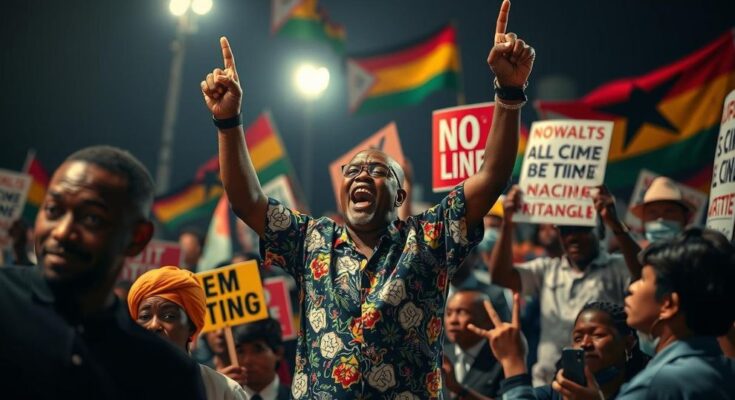Mozambique’s elections were declared won by the ruling Frelimo party amidst severe allegations of fraud and violence. Protests have erupted nationwide, led by opposition voices claiming unfair practices. The police’s harsh response to dissent has raised international concerns, demanding accountability for electoral violence and human rights violations.
Mozambique’s election commission has declared the ruling party, Frelimo, and its leader, Daniel Chapo, as the victors of the October 9 general elections. However, this electoral process has been overshadowed by violence, allegations of fraud, and concerns regarding restrictions on basic freedoms, raising alarms about its legitimacy on both national and international stages. Political tensions crescendoed as independent candidate Venâncio Mondlane, backed by the opposition party Podemos, claimed to have won the presidency. He called for a nationwide protest, urging his supporters to remain at home, which has led to substantial participation in the shutdown, affecting daily life across the nation with many businesses closing. In recent days, chaos erupted when police used tear gas on protesters against alleged electoral fraud and the recent killings of opposition figures in Maputo. Numerous injuries were reported among demonstrators and journalists, showcasing the violent response of authorities. Leading up to the elections, widespread abuses against activists and media personnel included harassment and arbitrary arrests, with no accountability yet for these actions. The authorities’ strong-arm tactics against expressions of dissent have severely compromised the credibility of Mozambique’s elections. There is an urgent need for the government to cease violent policing methods and respect the right to peaceful protest, allowing for a fair response to the election’s outcomes. International attention is pivotal; the global community should demand that the newly elected government investigate instances of electoral violence and human rights abuses, ensuring that all victims receive justice, regardless of their political stance.
Mozambique has witnessed heightened political strife as the ruling party, Frelimo, faces accusations of electoral fraud in the recent general elections. The political climate has been turbulent, characterized by violence, deaths of opposition leaders, and suppressive tactics against civil activism, highlighting serious governance issues and eroding trust in political processes.
The general elections in Mozambique have spurred significant protests and raised serious questions about the integrity of the electoral process. Despite the ruling party’s declared victory, widespread allegations of fraud and brutality against dissenters have marred the legitimacy of the elections. The international community must hold the new government accountable to ensure justice for those impacted by electoral abuses, aiming for a more equitable political landscape.
Original Source: www.hrw.org



